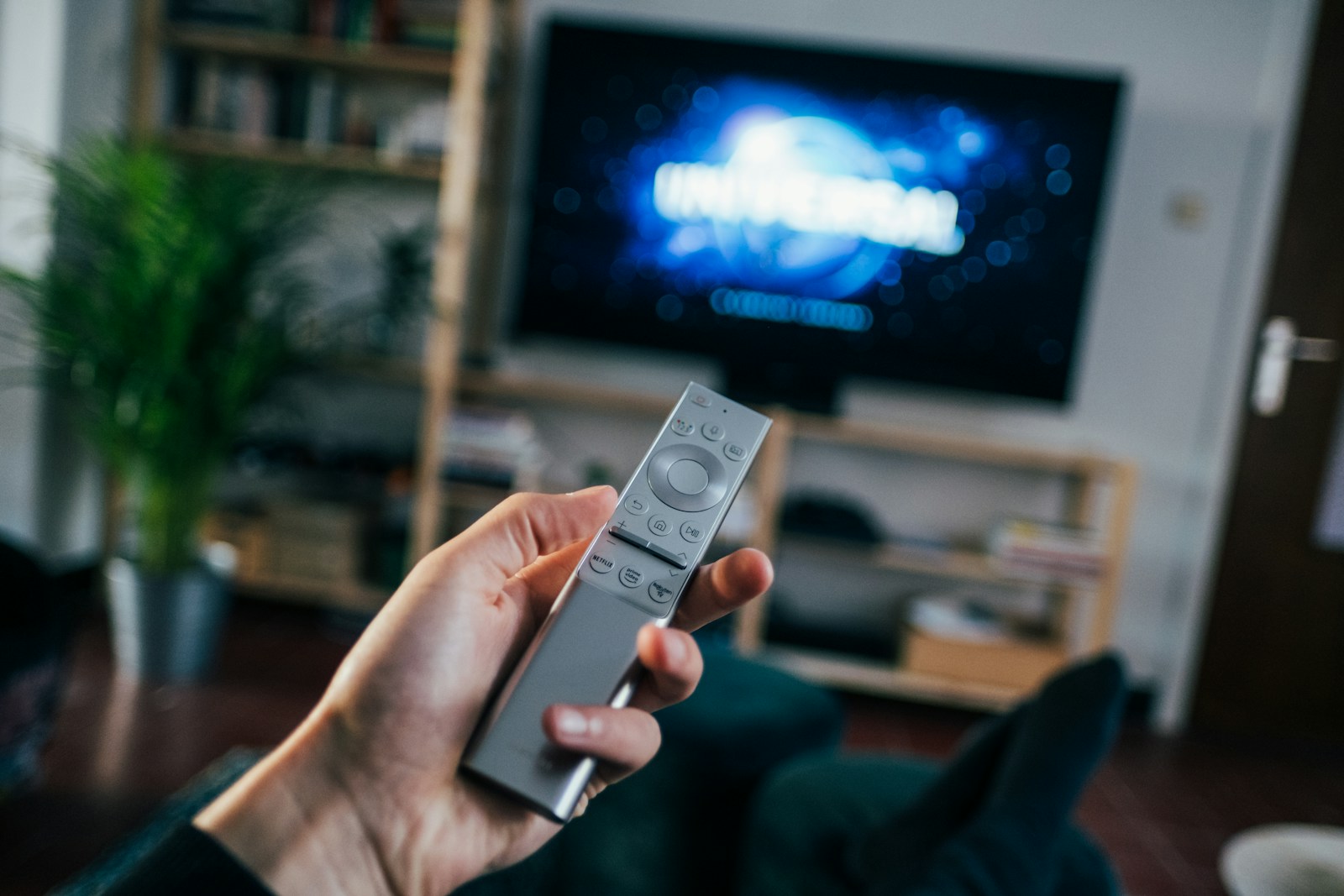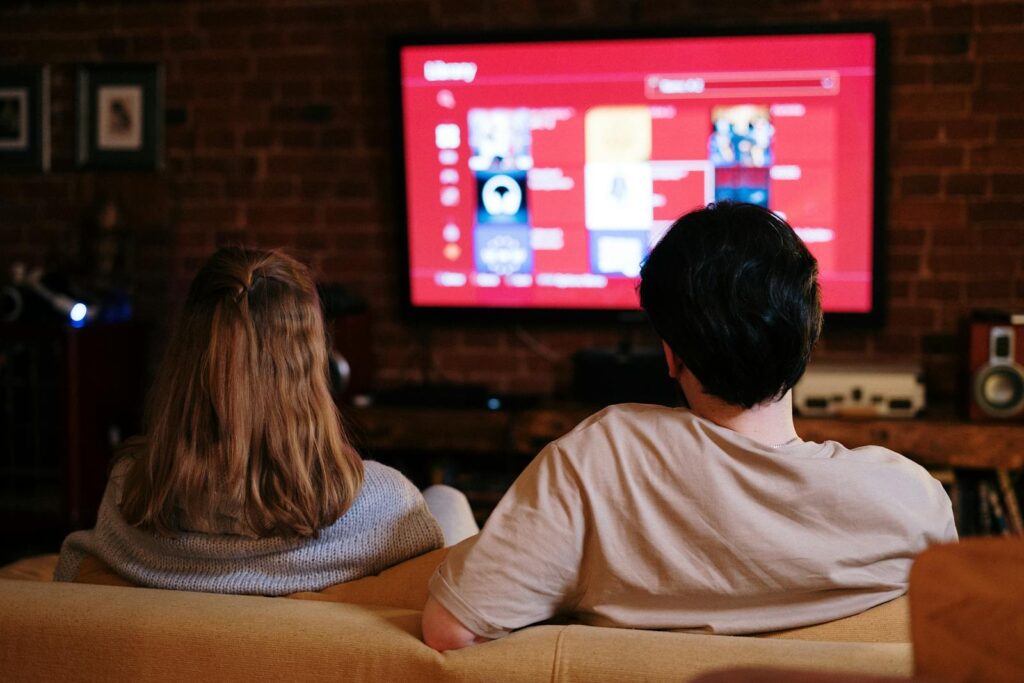In an era teeming with an unprecedented deluge of new content, where streaming platforms vie for our attention with countless fresh narratives and innovative series, a peculiar and increasingly common phenomenon has taken root: the profound gravitation towards rewatching old television shows. For many, the choice between embarking on a novel cinematic journey and revisiting the comforting familiarity of a beloved sitcom is not a choice at all; the remote instinctively guides us back to the known.
This isn’t merely a matter of disinterest in the new, nor is it simply a testament to the timeless quality of classic programming. Instead, our deep-seated attachment to familiar narratives stems from a complex interplay of psychological and emotional factors. As one social worker and mental health educator aptly puts it, after spending significant time immersed in heavy topics like trauma, depression, and anxiety, the craving for a “healthy escape” often leads to “revisiting a show I’ve already seen.”
From the raucous laughter evoked by Dwight Schrute’s chaotic safety drills in ‘The Office’ to the serene predictability of ‘Gilmore Girls’ or ‘Friends,’ these shows offer more than just entertainment; they provide a profound sense of comfort, regulation, and psychological reprieve. The answer to ‘why’ we return to these stories lies at the intersection of nostalgia, emotional safety, and our intrinsic need for psychological regulation. Let’s delve into some of the most compelling reasons why old TV shows provide such universal solace.

1. **Nostalgia: The Comfort of Memories**: Nostalgia, far from being a mere sentimental glance backward, emerges as a potent emotional force that profoundly shapes our rewatching habits. It is a powerful emotional state that connects us to happier or more stable times, serving as a direct conduit to cherished periods of our lives. When we cue up a show we adored in a simpler or more joyful phase, it reliably evokes warm feelings, offering a temporary but meaningful reprieve from present-day anxieties and stressors.
This psychological phenomenon extends beyond simple reminiscence; studies have consistently demonstrated that nostalgia can significantly benefit our mental health. It actively boosts mood, cultivates a sense of meaning and belonging, and can even enhance self-esteem. Old TV shows, in this context, transcend their original purpose as entertainment and become veritable portals, transporting us back to the specific moments when we first encountered them—whether that was “lounging on the couch after school,” “binging episodes with friends,” or “sharing laughs with loved ones who are no longer in your life.” These deeply ingrained memories forge a profound sense of emotional security and familiarity that is inherently comforting.
The act of rewatching thus becomes an active form of emotional self-regulation, allowing us to tap into a wellspring of past happiness. It reminds us of continuity and stability, anchoring us in a personal history that feels safe and predictable. The shows themselves become less about their plots and more about the deeply personal narratives they trigger within us, acting as a bridge to our own treasured pasts and the feelings associated with them.

2. **Emotional Safety and Predictability**: When the complexities of modern life become overwhelming, our brains instinctively seek simplicity and order. After a day fraught with professional demands or personal challenges, the desire to minimize mental effort and cognitive load—the amount of working memory being used to process information—becomes paramount. Watching an old TV show serves as an effective coping strategy precisely because of its inherent predictability.
With familiar storylines and well-known characters, our brains are freed from the effort of processing new information, allowing for a significant reduction in cognitive load. This predictability offers a powerful antidote to the pervasive uncertainty and chaos that often define our everyday experiences. Unlike new shows, which demand an investment of time and mental energy to grasp unfamiliar plots, characters, and twists, old shows allow us to “relax into the comfort of knowing exactly what comes next.”
This deliberate embrace of the known creates a vital sense of emotional safety. Psychologist Pamela Rutledge underscores this, stating that we “seek out familiar stimuli as opposed to unfamiliar ones during times of stress.” The structure and predictability that our favorite shows provide are “restorative,” she explains, because they are “easy on the brain, and reduces its cognitive load.” This consistent, unchanging narrative can be profoundly therapeutic, especially when we feel anxious, reaffirming that there is order in the world and creating “a sense of safety and comfort on a primal level.”

3. **Regulating the Nervous System and Grounding Through Media**: Beyond providing emotional comfort, rewatching old TV shows plays a crucial role in regulating our nervous systems. In moments of dysregulation—be it from stress, anxiety, or other emotional turmoil—grounding techniques are essential for stabilizing our emotions. Familiar media offers a unique form of grounding, engaging our senses within a safe and entirely predictable environment, which is especially vital given that “trauma is the body’s reaction to a perceived threat or a general sense of danger and lack of safety.”
In a contemporary landscape where our nervous systems are frequently in a state of “fight or flight” due to a multitude of traumatic experiences—environmental, societal, and interpersonal—our bodies yearn for mechanisms that foster grounding and a sense of security. The soothing effect derived from rewatching beloved shows is akin to the comfort provided by a warm, weighted blanket; it’s a holistic sensory experience.
This goes beyond the plot itself, encompassing “the familiar theme song, reciting those timeless jokes, and even appreciating the stunts, colors, and visuals.” These multimodal elements coalesce to create a powerful grounding effect, calming both the mind and the body. By immersing ourselves in a sensory landscape that is wholly anticipated and benign, we allow our nervous systems to de-escalate, finding a much-needed respite from internal and external pressures.

4. **A Sense of Control in a Chaotic World**: In our increasingly fast-paced and unpredictable world, the sensation of powerlessness can be truly overwhelming. Rewatching old TV shows, however, offers a subtle yet significant sense of agency. The familiarity of a narrative becomes exceptionally valuable, particularly when grappling with stress or anxiety. When we know the storyline, anticipate the jokes, and are acquainted with the emotional arcs, it instills a feeling of control, which can be profoundly empowering in various ways.
Repetition itself possesses an inherently soothing quality, serving to reinforce feelings of safety and comfort. This is a phenomenon observed from childhood, where a child might repeatedly ask for the same bedtime story or the same game of peek-a-boo. As adults navigating a world brimming with challenges, old TV shows offer a reassuring reminder that some fundamental truths—like certain character fates or established plot points—”will always remain true.” This constancy is a balm to a restless mind.
Moreover, the act of choosing to rewatch grants us a unique form of control over our entertainment experience. As Elizabeth Margulis describes in what is known as “a conjuring power” regarding music, knowing exactly what will happen in a show gives us a sense of personally controlling the outcomes. It’s a feeling of directing the characters and their actions, which can bring immense satisfaction. We are effectively choosing the stories we experience, the characters we engage with, the feelings we desire, and the satisfying endings we anticipate.

5. **Dopamine Release and the Pursuit of Pleasure**: The human inclination towards pleasure is a fundamental driver of many behaviors, and watching a favorite TV show is no exception. This enjoyable activity can trigger a significant release of dopamine, the brain’s primary reward chemical. Because our brains form powerful associations between the show and previously experienced positive emotions, revisiting it becomes a reliable and accessible source of joy, pleasure, and happiness.
This chemical reward system is crucial to understanding the enduring appeal of rewatching. Our neural pathways learn that these familiar narratives consistently deliver a positive emotional payoff, thereby reinforcing the behavior. It’s a self-perpetuating cycle: the anticipation of pleasure leads to the act of rewatching, which in turn delivers the dopamine hit, solidifying the show’s status as a ‘comfort’ source. The brain essentially registers these shows as dependable conduits to feeling good.
This simple yet powerful neurological mechanism explains why, even after numerous viewings, the satisfaction remains. The pleasure isn’t diminished by foreknowledge; rather, it’s enhanced by the certainty of the positive emotional experience. It transforms the act of watching from a mere leisure activity into a consistent, easily accessible source of well-being, a guaranteed dose of happiness in our daily routines.

6. **The Principle of Least Effort (Cognitive Ease)**: Our brains are inherently designed for efficiency, seeking to conserve energy by choosing courses of action that require the smallest amount of effort. This fundamental evolutionary principle, known as the Principle of Least Effort, profoundly influences our entertainment choices. When we are already familiar with a story, our minds can relax, allowing us to be entertained without expending significant cognitive resources.
This isn’t a symptom of laziness, but rather a basic biological imperative. As evident in the desire paths worn into the grass on university campuses, organisms, including humans, naturally gravitate towards the path of least resistance. Applying this to media consumption, watching a familiar show demands far less cognitive effort than engaging with an unfamiliar one. This reduction in mental exertion is precisely what many of us crave, particularly after a long or demanding day.
When faced with the sheer volume of new content available, the prospect of decoding unfamiliar plots, learning new characters, and investing emotional energy can feel genuinely exhausting. Old shows, in contrast, “don’t ask anything of you.” They offer a frictionless viewing experience, allowing us to absorb their rhythm and tone without the anxiety of a learning curve. This ease on the brain is a powerful draw, providing a genuine sense of relaxation and mental decompression without taxing our already saturated minds.
7. **The Paradox of Choice: Escaping Decision Fatigue**: The modern streaming landscape, while offering unparalleled access to content, has inadvertently created a new psychological challenge: the paradox of choice. Psychologist Barry Schwartz’s research indicates that an overwhelming array of options can lead to decreased satisfaction with our eventual choices. The sheer volume of content on platforms like Netflix, Hulu, and Amazon Prime often creates anxiety and dissatisfaction, frequently culminating in the avoidance of choosing altogether.
For many, the process of navigating vast libraries to find something appealing can become complicated, tedious, and simply not worth the time and mental effort. The “overload of choices is often too much to compute for a lot of us after a long day,” leading to a state of decision fatigue. Instead of painstakingly sifting through thousands of new possibilities, many viewers opt for the effortless reliability of a show they already know and love.
In this context, rewatching becomes a strategic simplification. It’s an effective way to circumvent the anxiety-inducing process of selection, much like reaching for comfort food instead of attempting a complex new recipe. A familiar favorite offers guaranteed satisfaction and is “always easy to digest and satisfying,” providing immediate gratification without the associated mental drain. It’s not a lack of curiosity, but a pragmatic response to an overstimulated environment, a way to reclaim agency by reducing the cognitive burden of endless options.

8. **Parasocial Relationships: Fostering One-Sided Bonds**: In our increasingly digital and sometimes disconnected lives, the immersive nature of television allows viewers to forge profound connections with characters, transcending the screen into a realm of perceived intimacy. These powerful, one-sided attachments, known as parasocial relationships, represent a fascinating psychological phenomenon where individuals develop a sense of friendship or even kinship with fictional personas, despite the absence of any direct interaction. This attachment is not merely passive; it fulfills genuine social needs, providing a sense of companionship and belonging that can be particularly salient in a world where real-life connections can feel challenging to cultivate.
When we rewatch a series, we are not just revisiting a story; we are actively returning to the comforting presence of these “especially reliable friends,” as the context aptly describes them. The consistent, predictable behavior of beloved characters fosters a deep sense of trust and familiarity. We know their quirks, their triumphs, and their vulnerabilities, creating an illusion of shared history. This sustained engagement allows these relationships to deepen over time, transforming fictional figures into a comforting presence that can help alleviate feelings of loneliness and isolation, making our living rooms feel a little less empty and filling a void that real-life interactions might not always satisfy.
This connection extends beyond mere passive observation; viewers actively engage with the perceived personalities and narratives of these characters. They anticipate their reactions, empathize with their struggles, and celebrate their victories, much as they would with a real-life acquaintance. This investment of emotional energy creates a strong sense of intimacy, where the characters become an integral, albeit fictional, part of the viewer’s social fabric. It’s a testament to the human capacity for empathy and the brain’s willingness to form bonds even when they are entirely one-sided.
While the context also cautiously mentions a “dark side” to parasocial relationships, such as unhealthy obsession, the general experience for most viewers is overwhelmingly positive. These bonds offer a safe space for emotional investment, allowing us to explore complex human dynamics without the risks inherent in real-world interactions. The stability and unwavering presence of these characters provide a unique form of emotional support, reinforcing a sense of connection and understanding, much like catching up with an old, trusted confidant who always delivers what is expected.

9. **The Joy of Rediscovery and Nuanced Appreciation**: One might assume that knowing a story’s every twist and turn would diminish its appeal, yet the act of rewatching often reveals a profound and unexpected pleasure: the joy of rediscovery. Far from merely reliving past experiences, returning to a familiar narrative with a fresh perspective allows us to uncover layers of meaning, subtle nuances, and intricate details that were missed in initial viewings. This process is akin to re-reading a cherished book, where each subsequent read deepens one’s understanding and appreciation of the author’s craft.
As the context eloquently puts it, “Once we are familiar with the overall plot and the key scenes, we can detect and appreciate the details and subtleties of personal interactions we overlooked earlier.” The cognitive load of following a new plot is replaced by the freedom to observe the intricate dance of dialogue, character reactions, visual storytelling, and even background elements. A knowing smile, a fleeting glance, or a cleverly foreshadowed line of dialogue suddenly takes on new significance, enriching the entire viewing experience. It’s like finding hidden treasures within a map you thought you had already fully explored.
This nuanced appreciation extends beyond plot points to the very fabric of the production. Viewers may begin to notice the director’s choices, the subtle brilliance of an actor’s performance, the intricate set design, or the evocative power of the musical score. For “cinephiles,” who observe the art form on a deeper level, rewatching becomes an academic exercise in itself, allowing them to dissect the script, screenplay, and visuals with a keen eye. This active engagement transforms passive consumption into an enriching, almost collaborative experience, where the viewer actively co-creates meaning with each repeat viewing.
Furthermore, our own personal growth shapes this rediscovery. “Rewatching a familiar movie allows us to revisit an old memory with a new perspective. We understand more–or differently–because of intervening experiences.” The person who first watched *Sideways* nearly two decades ago, for instance, might now, after years of wine collecting, perceive new depths in its portrayal of connoisseurship. Our evolving life experiences and accumulated wisdom act as new lenses, revealing different facets of a story that once seemed entirely familiar, bridging the gap between our past selves and our present understanding, and deepening our connection to the narrative.
As we conclude our journey through the myriad reasons why old sitcoms hold such an enduring appeal, it becomes abundantly clear that our gravitation towards familiar narratives is far from a mere habit; it is a sophisticated interplay of psychological needs, emotional regulation, and deep-seated human desires. From the comforting embrace of nostalgia to the profound sense of control and the joy of rediscovering nuances, these shows offer a multi-faceted balm for the complexities of modern life. They are more than just background noise; they are anchors in a tumultuous world, providing predictability when chaos reigns, fostering connections when loneliness looms, and offering a reliable wellspring of positive emotion. So, the next time you find yourself reaching for that remote, instinctively cueing up a beloved classic, remember that you’re not just watching TV; you’re engaging in a powerful, enriching, and deeply human act of self-care and connection. It’s a testament to the enduring power of storytelling, proving that sometimes, the most revolutionary comfort comes from the most familiar of places.





